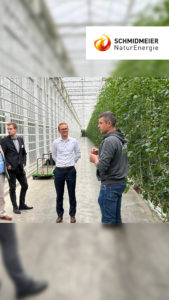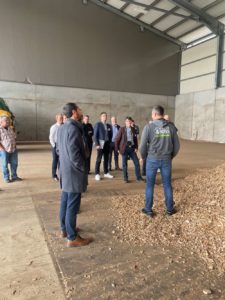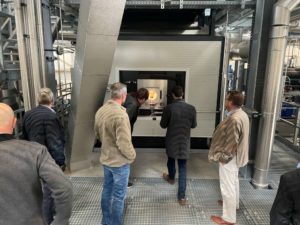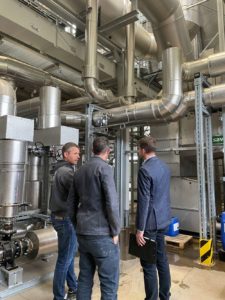Germany
20 November
CO2-neutral production of tomatoes, cucumbers, peppers
CO2-neutral production of tomatoes, cucumbers, peppers was a game changer for two family businesses. The two family-run vegetable producers from Nürnberg – Scherzer Gemüse and Gemüsebau Fritz Boss – have joined forces as Scherzer & Boss Fruchtgemüse GmbH. Together they cultivate more than 40 hectares, making them one of Germany’s largest greenhouse growers. But growth also brings energy needs.
The need for CO2-neutrality in production
When the Ukraine crisis hit and gas supplies became uncertain and expensive, the company faced a tough choice: continue relying on fossil fuels or find a more reliable solution. In 2022, their first biomass hot water plant went into operation, securing stable and affordable energy while freeing them from political and market turbulence.
One success led to the next, and encouraged by the first plant, Schmidmeier NaturEnergie GmbH built a second biomass system at the site. Commissioned in early 2025, the new combined heat and power system adds another 6,000 kW of clean energy. Together, the two systems provide a steady and climate-friendly energy supply the business can count on. In this way, the company was able to start CO2-neutral production of tomatoes, cucumbers, peppers.
Neutral CO2 food production aligns with forest management
Here, what powers the greenhouses also helps protect the forests. The plant does more than keep greenhouses warm and well-lit. It runs on wood sourced from the surrounding region – mainly beetle-damaged and storm-felled trees that would otherwise pose a risk in local forests. Each year, about 7,200 tons of this material are turned into renewable energy. In this way, Scherzer & Boss not only reduce their carbon footprint but also contribute to healthier forests and stronger local value chains.





